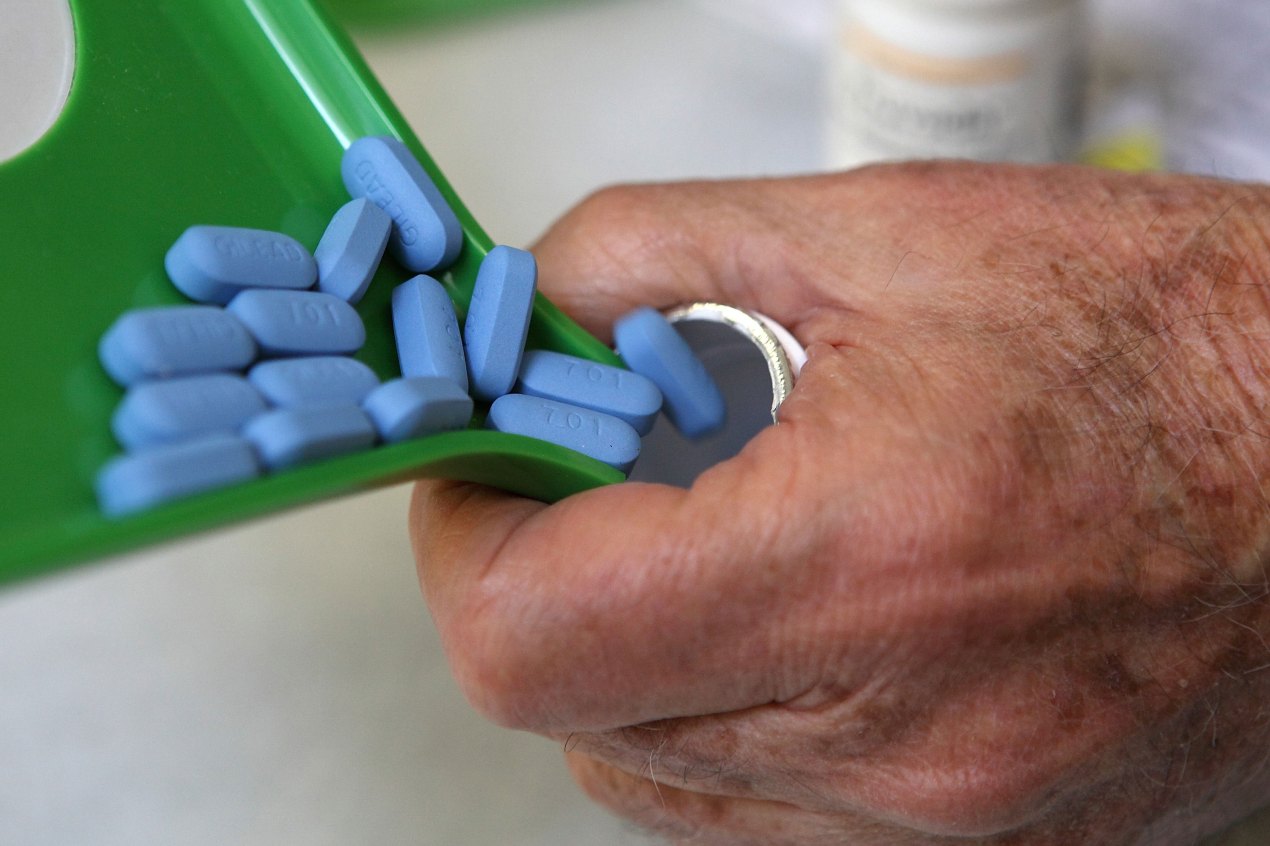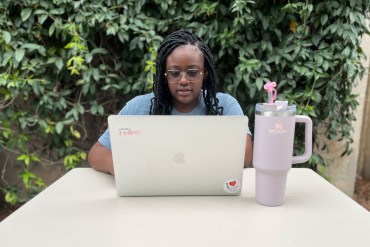A proposed aims to protect older Americans from contracting HIV by offering free preventive medication, the latest effort to catch up to much of Europe and Africa in stemming the spread of the virus.
Under the plan from the Biden administration, Medicare of preexposure prophylaxis drugs, which prevent HIV transmission. The drugs, known by the shorthand “PrEP,” would be free in pill form and — for the first time — as long-acting injectables through the government insurance program designed for those 65 and older. Those 50 and over of all people in the U.S. already living with HIV.
The proposed policy change represents a big shift because it means that even new long-acting injectable versions of PrEP drugs, which more than $20,000 a year in the U.S., would be covered fully, without requiring patients to kick in copayments. It is not yet clear what the plan would mean for taxpayers, though, either in paying for the medications or in offsetting the costs of caring for fewer Medicare patients with HIV in the future.
The final green light for the plan was expected Oct. 10, but the Centers for Medicare & Medicaid Services announced it is still working out details of how to transition coverage for patients already taking the drugs.
The U.S. is decades behind nations in Europe and Africa that are on track to end new HIV infections by 2030. But while the proposal should bring down infections in older Americans, it highlights remaining inequities: Many people under age 65 will still struggle to pay for PrEP. And, at the same time, Republican congressional leaders have threatened to cut funding for a federal HIV prevention effort championed by the Trump administration that is intended to help all at risk.
“We’ve done a very poor job in the U.S. of assuring that people who could most benefit from PrEP have access to it,” said Justin Smith, who directs the Campaign to End AIDS at in the Atlanta area.
Though PrEP has been embraced by gay and trans Americans, it is prescribed less often to heterosexuals over 50 or women of any age. In the first three months of this year, of the more than 300,000 people receiving PrEP in the U.S. were women, according to the Centers for Disease Control and Prevention. The racial gap is large, too: While 66% of white people eligible for PrEP got prescriptions for it in that period, only 8% of eligible Black people and 17% of eligible Hispanic people did.
Broadening access for gay and bisexual men of color, as well as straight and cisgender women of color — particularly Black women, who of women with HIV in the U.S. as well as the majority of new infections among women — is critical for the nation to catch up to the rest of the world, Smith said.
PrEP, a Key HIV Prevention Tool, Isn’t Reaching Black Women
New HIV infections occur disproportionately among Black women, but exclusionary marketing, fewer treatment options, and provider wariness have limited uptake of preexposure prophylaxis, or PrEP, drugs, which reduce the risk of contracting the virus.
Read MoreLeisha McKinley-Beach, a national HIV consultant and CEO of the , which prepares Black health department employees for leadership positions, noted that the Medicare proposal to cover the cost of injectable PrEP could help many women because a shot given every two months can be easier to manage than a daily pill.
But it’s just a start. She and others are lobbying for a national PrEP plan that would build on momentum from the recent Medicare proposal to expand free access to other age groups, much as with covid-19 vaccinations. McKinley-Beach also wants the U.S. government to expand the message that anyone can get HIV, encourage drug companies to advertise more on TV to women of color, and fund outreach to dispel medical mistrust in communities of color.
“Gay white men have had a narrative of dignity and respect with regards to HIV treatment, and I would never want to change that narrative,” she said. “But the message needs to be broadened. Forty-two years into the HIV epidemic, the current HIV prevention model is detrimental to Black women who could benefit from PrEP.”
Though the U.S. was to approve PrEP, in 2012, it now trails the rest of the world in equitable access. That’s mostly due to the cost of laboratory tests and medical visits. While the cost of the generic form of Truvada, an oral form of PrEP, can be as low as about $30 a month in the U.S., by University of Virginia researchers reported the cost of starting PrEP is typically about $2,670 for uninsured patients, including about $1,000 for lab tests and medical visits. The new Medicare proposal would cover up to seven counseling visits every 12 months for HIV risk assessment and reduction.
Meanwhile, PrEP pills are free for people in the United Kingdom and including France, Germany, Sweden, and Denmark. Those nations don’t yet cover the more expensive shots, although the U.K. is leading a small test on injectable PrEP in people who cannot take it in tablet form.
The U.S. also lags Western Europe and some nations in Africa in overall HIV treatment and prevention. For example, just 57% of HIV-positive Americans have attained viral suppression, according to the U.S. government website , meaning they regularly take medications to make them unable to transmit the virus. That makes PrEP, which is for people who don’t have the virus, all the more important for Americans to stay negative, according to HIV experts.
In Africa, by contrast, Botswana, Eswatini (formerly Swaziland), Rwanda, Tanzania, and Zimbabwe have already achieved the United Nations’ set for 2025 — 95% of people with HIV know their HIV status, 95% of people with diagnosed HIV infection receive sustained antiretroviral therapy, and 95% of people receiving antiretroviral therapy have achieved viral suppression, or the virus is undetectable in their blood — .
In the U.K., have achieved “undetectable” status via free antiretroviral medicines and treatment available through the country’s universal health care program, the National Health Service. Moreover, nearly anyone in the U.K. who is HIV-negative and wants to take PrEP can get it at no charge. it is now on a path to reduce new HIV infections by 80% by 2025.
The U.K. changed its PrEP approach after 2015, when Greg Owen founded “,” a website that ignited a PrEP movement by helping people in the U.K. and Europe self-source low-priced generic forms of Truvada, the first drug approved as PrEP, from pharmacies in Hong Kong and India.
“It became more affordable,” said Owen, now PrEP lead at one of the U.K.’s top HIV and sexual health charities, . “Soon people demanded it for free on the NHS.”
In the U.S., Smith said, the lack of a national PrEP program that would make the drugs and associated bloodwork free and a heated political climate around health care have hindered HIV outreach.
“In rural areas of the South, especially in places like Georgia or Tennessee, there has been outright hostility toward accepting money from the CDC and to treat and prevent HIV,” Smith said. “People think it’s just politics, but this is having an impact on public health, on people’s lives.”
Anti-queer sentiment in many quarters also creates an environment of hostility around overall sexual health, said , director of clinical research at Washington Health Institute and a professor at George Washington University School of Medicine and Health Sciences. “There’s a chilling effect for everyone, not just queer Americans,” he said.
Elion said shame surrounding sex and the feeling of vulnerability that some people get from taking any medicine may also reduce PrEP uptake among older Americans. “Taking PrEP is actually very empowering, and that needs to be the message,” he said.








